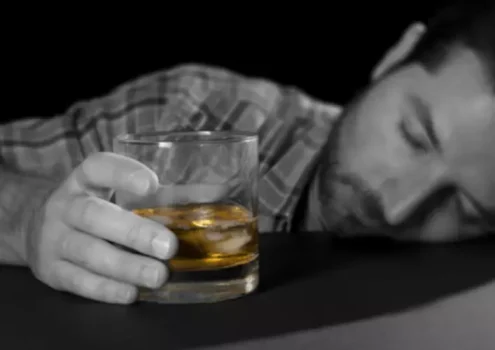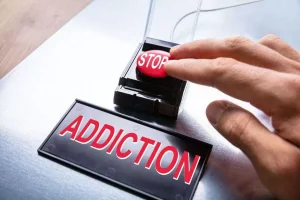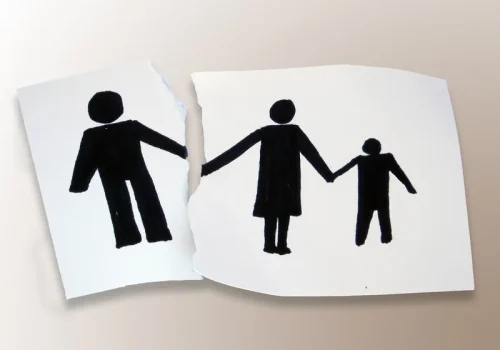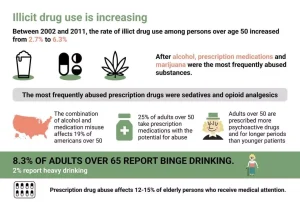
Post-acute withdrawal syndrome (PAWS) might occur weeks or months after ceasing substance use and undergoing detoxification. Unlike acute withdrawal, alcohol detox side effects PAWS symptoms are usually more psychological and emotional. BetterHelp offers affordable mental health care via phone, video, or live-chat.

Understanding Alcohol Withdrawal
Treating alcohol withdrawal is a short-term fix that doesn’t help the core problem. When you talk to your doctor about symptom relief, it’s a good idea to discuss treatment for alcohol abuse or dependence. If your blood pressure, pulse, or body temperature rises, or if you have more serious symptoms like seizures and hallucinations, seek medical care immediately (dial 911).

What Happens to Your Body When You Stop Drinking Alcohol
Because the body usually works to maintain balance, it will signal the brain to make more neurotransmitter receptors that excite or stimulate the central nervous system. Stage one of withdrawal begins within 6 to 12 hours after the last drink. If you need help finding a primary care doctor, then check out our FindCare tool here. Read on to learn about the symptoms of AWS, as well as how it can be treated or prevented.
Alcohol Withdrawal Syndrome: Symptoms, Causes, Treatment, and More

Following alcohol cessation, alcohol withdrawal syndrome typically presents as minor symptoms such as mild anxiety, headache, gastrointestinal discomfort, and insomnia. This syndrome can further progress to severe manifestations, such as alcohol withdrawal delirium, which poses significant diagnostic and management challenges. Mild https://ecosoberhouse.com/ symptoms may progress to alcohol hallucinosis, characterized by visual or auditory hallucinations that usually subside within 48 hours after alcohol cessation. Withdrawal seizures can occur in patients within just a few hours of alcohol cessation. Options for detox include hospitals, inpatient rehabs, or outpatient programs.

What Causes Alcohol Withdrawal Symptoms?
Women who had two or more drinks per day and men who had four or more drinks per day had significantly increased mortality. If you’re a heavy drinker, you’re at an increased risk of developing certain diseases, such as cancer, heart disease, and stroke. However, when you stop drinking, your risk of developing these diseases decreases. Like other symptoms, the impact on mood depends on the amount and duration of your alcohol use. For light or moderate drinking, you might experience a more temporary, mild effect on mood. If you’ve been drinking heavily or for long periods, the impact will be more pronounced, and it will take longer for your neurotransmitter systems to restore their balance in your body.
- Most people stop having withdrawal symptoms four to five days after their last drink.
- Lowered inhibitions can lead to poor choices with lasting repercussions — like the end of a relationship, an accident or legal woes.
- It’s a good idea to detox with medical supervision so you can stay healthy, safe, and as comfortable as possible.
- This assessment should include an evaluation of the presence of coexisting medical and psychiatric conditions, the severity of the withdrawal symptoms, and the risk of withdrawal complications.
- While occasional social drinking may not result in significant changes when you decide to quit, you may experience more significant effects if you have been drinking heavily for an extended time.
About five percent of the patients who experience DT’s die from metabolic or cardiovascular complications, trauma, or infections (Victor and Adams 1953; Cutshall 1964). Another medication used in the treatment of alcoholism is disulfiram. Unlike other medications, disulfiram works by producing severe reactions if alcohol is consumed. For instance, if you drink while on disulfiram, you will experience unwanted effects like facial flushing, nausea, headache, weakness and low blood pressure.
You May Feel More Productive
The most uncomfortable detox withdrawal symptoms usually peak around hours after the last drink and start to lessen by hours. Although delirium tremens is unlikely, roughly 30% of those who get it will also develop Aspiration Pneumonia. A medically-assisted withdrawal helps prevent serious complications, keeps track of a patient’s health condition, and relieves any painful effects. A healthcare provider will also run tests to rule out other medical conditions that have similar symptoms of alcohol withdrawal or occur alongside withdrawal. These conditions include gastrointestinal bleeding, infection, intracranial hemorrhage (acute bleeding in the brain), and liver failure.
A doctor will consider all these factors when estimating how long-lasting and how severe your symptoms may be. Carbamazepine works by slowing down electrical signals in the brain that can cause symptoms. It may also reduce the activity of glutamate, an amino acid that has been shown to play a role in withdrawal. Gabapentin works by increasing levels of GABA in the brain to alleviate symptoms.
Mental Health Effects When You Stop Drinking
- Keep in mind that everyone is different and will experience different things when they stop drinking.
- Studies show support groups play an instrumental role in helping people develop healthy social networks that result in continued sobriety.
- Given its spectrum of manifestations from mild to severe and potentially fatal, all healthcare team members must recognize the signs and symptoms of this condition.
- In many cases of alcohol detox, a doctor will prescribe certain medications to lessen withdrawal symptoms5 and prevent complications.
- BetterHelp offers affordable mental health care via phone, video, or live-chat.

